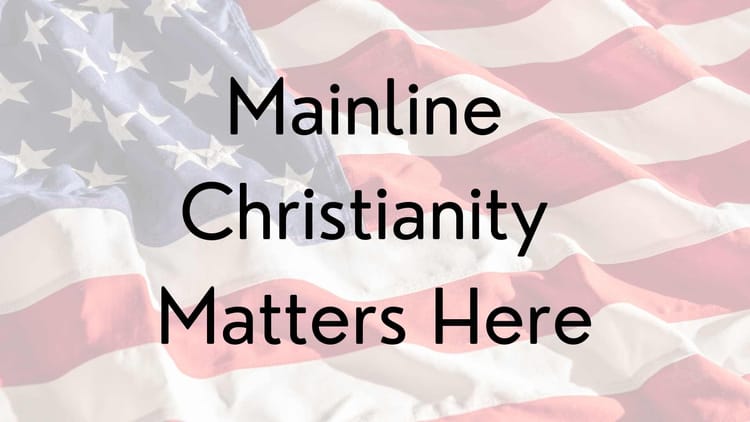Episcopalians, Here’s Your TREC Report Summary
This week in the Episcopal blogosphere, many posts are being written in response to the TREC report. I’m probably going to write one myself fairly soon. Before I do, it seemed important to figure out exactly what the report recommends. And since I’m a blogger, I thought I’d share. Not everybody is going to wade through 70+ pages. Here are the TREC recommendations in less than 1000 words. NB: This is not an official summary.
First, a review:
The Task Force to Reimagine the Episcopal Church was created by a resolution passed unanimously at the 2012 General Convention. A task force was created
whose purpose shall be to present the 78th General Convention with a plan for reforming the Church’s structures, governance, and administration
Why did the Episcopal Church need such a task force? That was defined also:
That this General Convention believes the Holy Spirit is urging The Episcopal Church to reimagine itself, so that, grounded in our rich heritage and yet open to our creative future, we may more faithfully:
• Proclaim the Good News of the Kingdom
• Teach, baptize and nurture new believers
• Respond to human need by loving service
• Seek to transform unjust structures of society
• Strive to safeguard the integrity of creation and sustain and renew the life of the earth;
(Those five bullet points are the commonly accepted Five Marks of Mission in the Anglican Communion.)
The task force provided an engagement kit for guided conversations, preliminary reports, and hosted a live and online meeting along the way to completing their task. The church has now received their final report.
What does the report recommend?
Grounding the proposals in Luke 10:1-11 (instructions to the apostles) the task force offers an overarching framework: “Follow Jesus together into the neighborhood; travel lightly.” It provides a compelling case for why the church needs to change, with reference to shifts in our cultural context. Then it offers proposals for restructuring the church. Some proposals can be enacted by General Convention; others must be taken forward by others.
1) Specific, concrete proposals to the General Convention
- Move to a unicameral model of governance. (Instead of the General Convention meeting separately as Bishops and Deputies, meet as one body including bishops, clergy, and laity.)
- Make General Convention smaller by sending only clergy and three lay delegates (instead of four as at present).
- Create a task force on the episcopacy to study the current process and recommend a new process for discernment, formation, search and election of bishops. Ensure that episcopal transitions include discernment with bishops of adjoining dioceses (presumably to determine whether merger or collaboration is indicated).
- Provide only active bishops, not retired bishops, vote in the affairs of the church.
- Lower the percentage of funds expected for the churchwide budget from participating dioceses. Make payment mandatory unless specific exception is granted.
- Compensate the Presiding Deputy position (currently titled President of the House of Deputies) to make the role accessible to more candidates.
- Clarify staff roles and responsibilities: Consider the Presiding Bishop the CEO of the Church, Chair of the Executive Council, and President of the Domestic and Foreign Missionary Society, “with clear managerial responsibility for all DFMS staff.” Provide for a Church General Manager (COO), Church Treasurer (CFO), Church Secretary (General Clerk), and Church General Chancellor (Chief Legal Officer) to serve under the supervision of the Presiding Bishop. Establish mutual ministry reviews among the Presiding Bishop, Presiding Deputy, and Executive Council.
- Make the Executive Council 21 members instead of 42. All nominees would be proposed by the Joint Standing Committee on Nominations (some proposed by the provinces). None would be nominated from the floor of General Convention.
- Eliminate all Standing Commissions except the Standing Commission on Liturgy and Music and the Standing Commission on Constitution and Canons. Rename these commissions to clarify the scope of their work.
General directions for further work by other bodies:
- Episcopal seminaries are to collaborate in new ways to offer new programs to foster new leadership.
- Diocesan Councils, Commissions on Ministry, and Bishops are to consider ways to support bi-vocational clergy.
- The Church Pension Fund and the Executive Council are to study our current system of clergy compensation, and the Church Pension Fund is to report to the next General Convention regarding the pension plan and how it meets the needs of today’s church.
- Churchwide staff are to create a network for churches and their leaders to foster excellence in liturgy and stewardship of resources, and to report progress annually in these areas.
- Bishops are to cultivate collaborations and discuss the number and size of our dioceses and whether change is needed, reporting to succeeding General Conventions.
- Dioceses are to reflect theologically on the use of their assets, particularly their buildings and grounds, “to develop a theology of sacredly inclusive use-of-space that is adaptive and generative financially and spiritually.”
- Presiding Bishop & Deputy are to convene professionals to advise congregations who wish to re-envision their space and its possible uses.
- Bishops, Deans, Chapters, Rectors and Vestries are to think strategically about how best to use their space in their local context to serve God’s mission.
- Standing Committees of each diocese are to set a standard for intervening in endowment spend-downs in order to provide for ministry to future generations.
- Planners are to shift the General Convention to a shorter church-wide mission convocation convening local mission practitioners to share best practices and develop networks.
- The presiding officers of General Convention are to appoint task forces to carry out the work of General Convention on a triennium-by-triennium basis. The Presiding Bishop’s office is ultimately responsible to ensure the issues identified by General Convention are studied and addressed.
This represents a distillation of the TREC proposals. A series of online leadership classes sponsored by TREC and developed by ChurchNext will carry the conversation forward.
My response to the report, Thank you TREC. Church, let’s get to work., has more summary information and suggested ways forward. And, it’s even shorter than this post.
Check it out here!





Member discussion